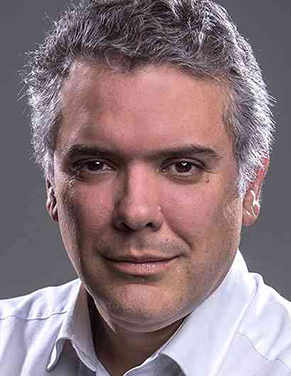BOGOTA, (Reuters) – Colombian President Ivan Duque on Monday said the Andean nation will withdraw from Unasur, a South American bloc set up a decade ago to counter U.S. sway in the region, in a move that will be completed in six months.
Right-wing Duque said the bloc has acted as an accomplice to the “Venezuelan dictatorship.” His announcement follows a decision in April by Colombia, along with Argentina, Brazil, Chile, Peru and Paraguay, to temporarily suspend membership.
“Today with precise instructions, the foreign minister sent Unasur the letter where we denounce the constituent treaty of that entity and in six months our withdrawal will be effective,” Duque said in a brief statement broadcast on the presidential website.
Unasur was created in 2008 when leftist populism advocated by the late Venezuelan leader Hugo Chavez was at its strongest in South America.
“Unasur is an institution that has lent itself, with its silence and often with its complacency … We cannot continue being part of an institution that has been the greatest accomplice of the Venezuelan dictatorship,” Duque said.
Venezuela’s Information Ministry did not immediately reply to a request for comment.
Chavez and other leaders at the time opposed the U.S.-backed proposal for a Free Trade Area of the Americas and instead set up Unasur to join South American nations in an economic and political union.
The initiative was also an attempt to bypass the Washington-based Organization of American States, which leftists considered a tool for promoting U.S. policy in Latin America.
The remaining Unasur members are Venezuela, Bolivia, Ecuador, Uruguay, Guyana and Suriname.





